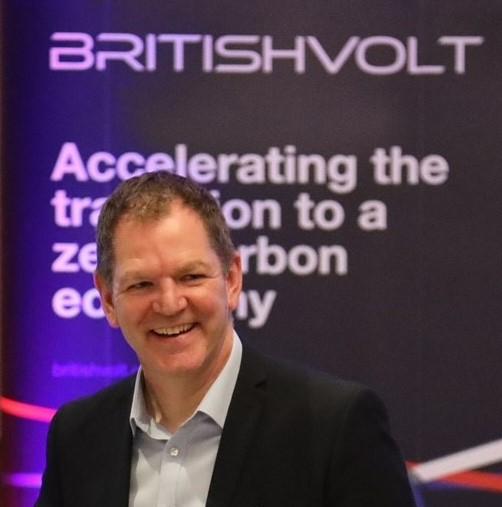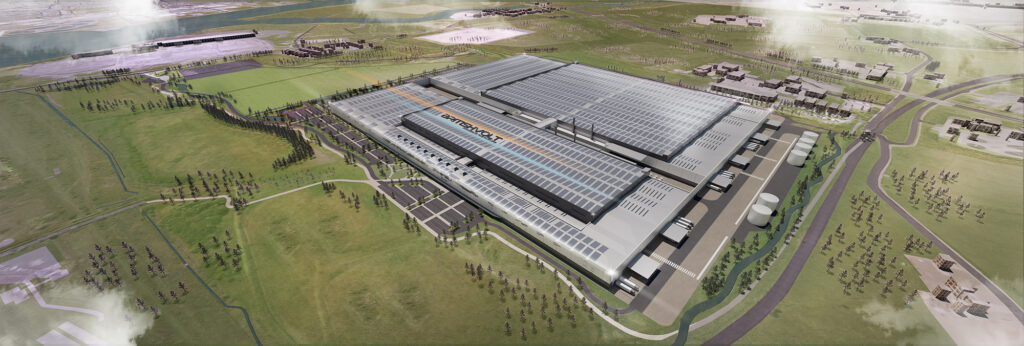Developments in Supply Chain Traceability

Guest Authors
View ProfileOther posts by
Guest Authors:
 This is a guest blog authored by Craig Woodburn, the head of ESG at Britishvolt, the UK’s foremost investor in battery cell technology and associated research and development. In this piece, Craig reflects on how far responsible sourcing of battery materials has come since the transition to a green economy started, the significance of the DRC and the importance of collaboration in the race towards net zero.
This is a guest blog authored by Craig Woodburn, the head of ESG at Britishvolt, the UK’s foremost investor in battery cell technology and associated research and development. In this piece, Craig reflects on how far responsible sourcing of battery materials has come since the transition to a green economy started, the significance of the DRC and the importance of collaboration in the race towards net zero.
Britishvolt
Britishvolt is Britain’s foremost investor in battery cell technologies and research and development. It is dedicated to developing the future of electrified transportation and sustainable energy storage, producing best-in-class, low-carbon, sustainable, responsibly manufactured lithium-ion battery technologies. The company is built on a foundation of ESG Principles and Commitments.
Developments in Supply Chain traceability
Globally, as the world moves towards a low carbon economy, there is an increased interest in the use of minerals required to enable the energy transition.
At Britishvolt, we recognise the need to reduce global warming to well below 1.5oC to ensure that the extreme weather conditions associated with climate change do not irreversibly impact the ability of the world to sustain our global population. Just looking at the recent ‘heatwave’ in the UK, record temperatures were recorded, and fires erupted across the capital – a damning realisation of the impact that humankind is having on the planet.

1. How can companies provide support for the transition to the mineral age?
One way to support the transition is through the adoption of battery technologies coupled with renewable energy generation to divert us away from the fundamental reliance we currently have on fossil fuels for powering our mobility. Quite simply, without the responsible manufacture of low-carbon, sustainable batteries to capture renewable energy creation, we will not see a successful energy transition.
The use of batteries is not without its own challenges. The materials used in the production of the current leading lithium-ion battery technologies includes materials such as lithium, nickel, graphite and cobalt. Put simply, lithium is used in the electrolyte to transfer the charge for battery power across the cathode (largely nickel, manganese and cobalt) and the anode (Graphite). It is recognised that as the transition to a mineral-based economy takes place rapidly, there will be a shortfall in the availability of these key raw materials by 2030. Even as new battery manufacturing technologies evolve, these shortfalls are still expected as it takes time and research for new facilities to be developed, proven and scaled to meet demand.
2. What minerals are used in battery manufacture and why is there an international focus on the DRC?
Materials availability is dictated by geology which places the materials in particular locations around the world. Again, based on the main four materials lithium’s main reserves are in Australia, Chile, Argentina and China and nickel is predominantly located in Indonesia with similar reserves in Australia, Brazil and Russia. The main cobalt reserves are in the Democratic Republic of Congo with the next largest reserves in Australia and Cuba. Graphite natural reserves are in Turkey, China and Brazil although this is supplemented by synthetic graphite production in other parts of the world.
![]()
Due to the concentrated reserves of Cobalt in the DRC, there has been an ongoing focus on this country where large mining companies often coexist with artisanal miners surrounding their concessions. Artisanal mining provides a livelihood to thousands of miners in the country, often using rudimentary techniques in search of the cobalt.
3. So why did Britishvolt join the FCA?
The unregulated artisanal mining (ASM) activities characterised by adverse health and safety concerns and occurrences of child labour have given rise to concerns about the sector. Significant steps have been undertaken to improve the situation. The Fair Cobalt Alliance (FCA) is working with a partner artisanal mining cooperative in Kamilombe to roll out specific key interventions to facilitate decent working conditions at the site. Most recently, the multi-stakeholder initiative of which Britishvolt is a member rolled out a PPE provision project, providing the cobalt washers at the mine site with wader boots to ensure their safety when washing the ore.
With the support of the GBA and its membership, the FCA has since 2020 worked with the DRC ministry of mines to develop a draft ASM cobalt framework to enable responsible sourcing of fair ASM. The standards are due for publication shortly and have had significant DRC government collaboration, coupled with consultation from stakeholders across the cobalt value chain. The adoption of the framework will allow for pilot implementation and the ambition to increase the supply of fairly sourced cobalt to the market as the standard of ASM mining improves through investment into continuous mine improvements.

Traditionally, consumers have had limited interest in the value chain of their commodities. Legislation has focused primarily on a few materials where greater scrutiny is needed but recently, the appreciation that greater visibility along the entire supply chain is needed for many materials is becoming the norm.
For these wider range of materials, there are opportunities to instil in the supply chain greater visibility of the activities supporting material provision. As the focus and volume of battery materials increases, partnerships such as the ones under the FCA are developing that support improvements in the traceability and provenance of materials being supplied.
4. Will responsible sourcing be fully materialised in the next decade?
As is the case in the DRC, these again will not be quick solutions. It is encouraging that activities are underway that ensure materials are traced through the supply chain and that standards and expectations are set with suppliers along the value chain, necessitating improvements in a wide range of Environmental, Social and Governance topics such as decarbonisation, health and safety, governance and fair working conditions.
This is part of what we at Britishvolt are setting in place. As a new company developing our supply chains, we are able to recognise and actively address some of these challenges that exist in the new evolving Lithium-ion battery technology world. We endeavour to do the right and responsible thing in everything we do, to ensure we can have a positive impact across the battery supply chain. By being a member of the FCA, we affirm our belief that the race to net zero is one of collaboration, we all have our part to play.



